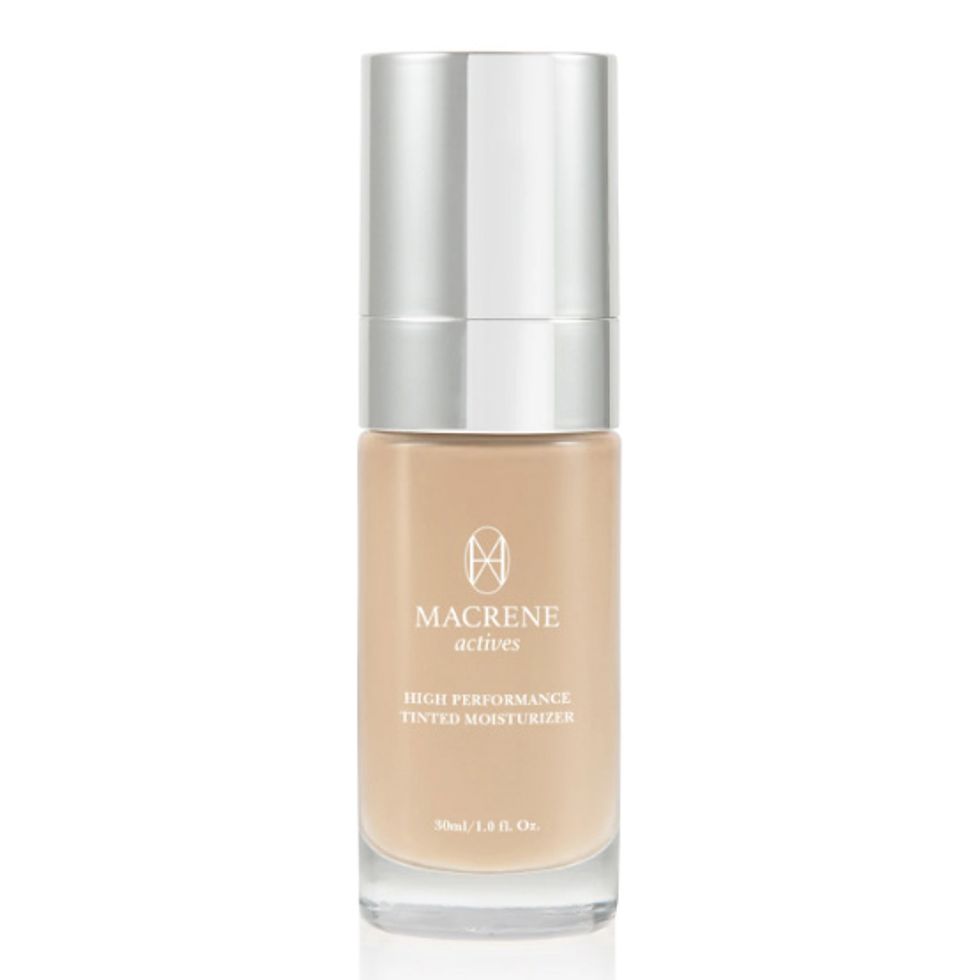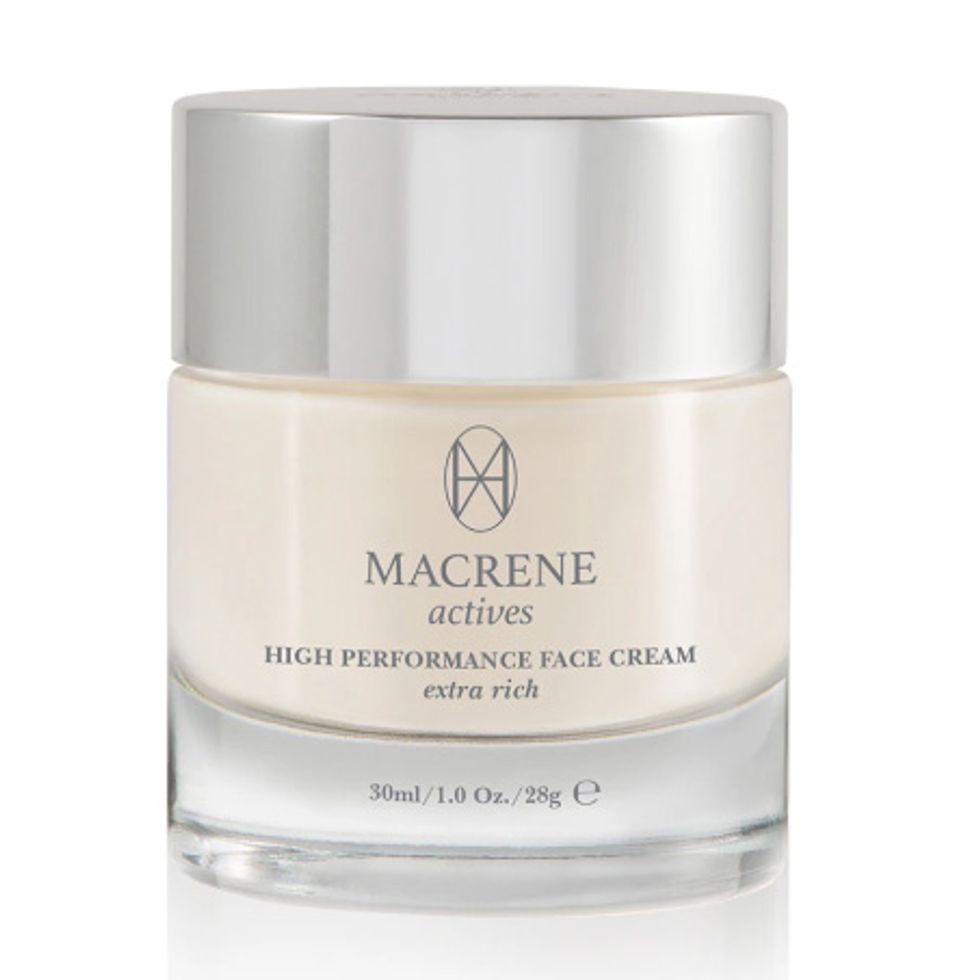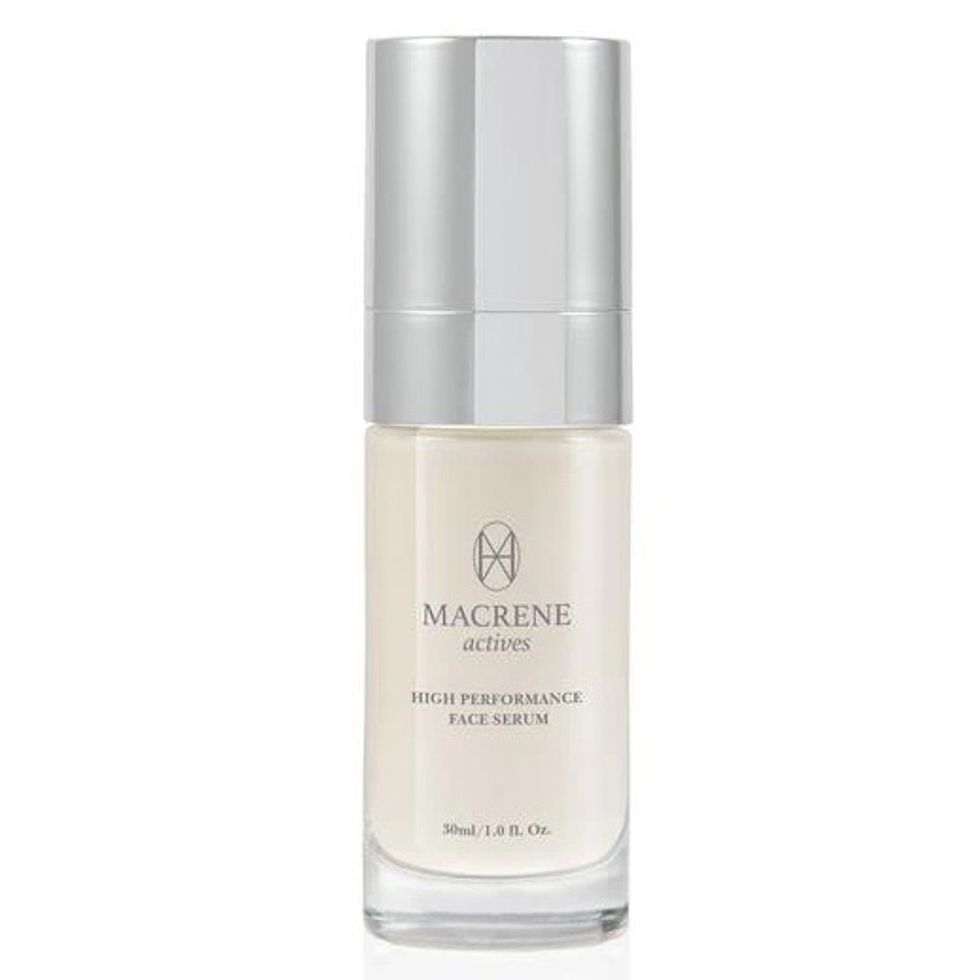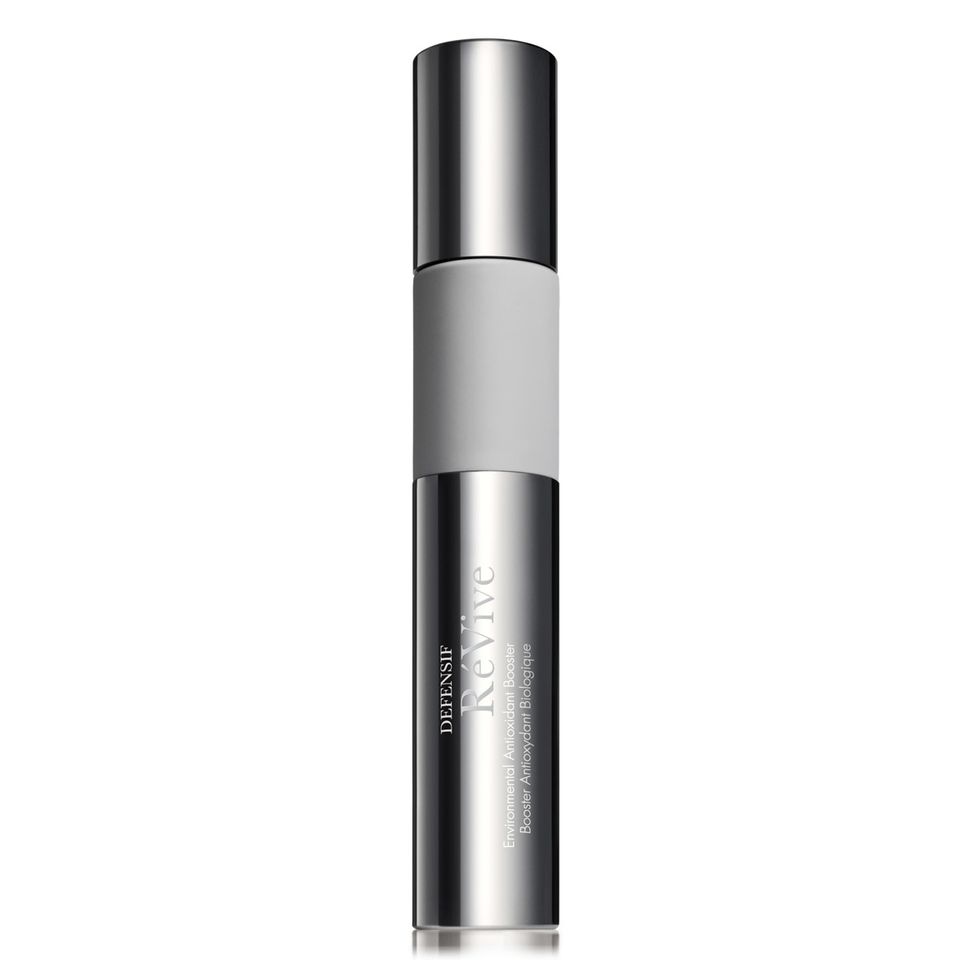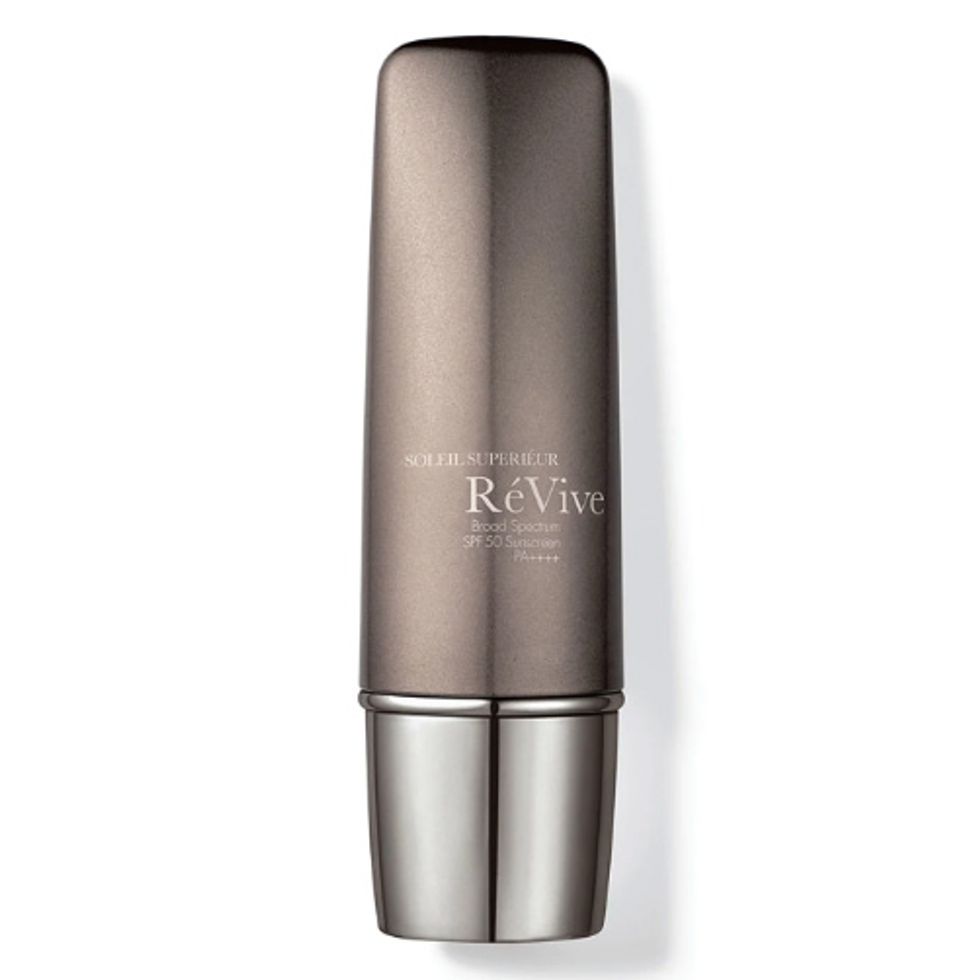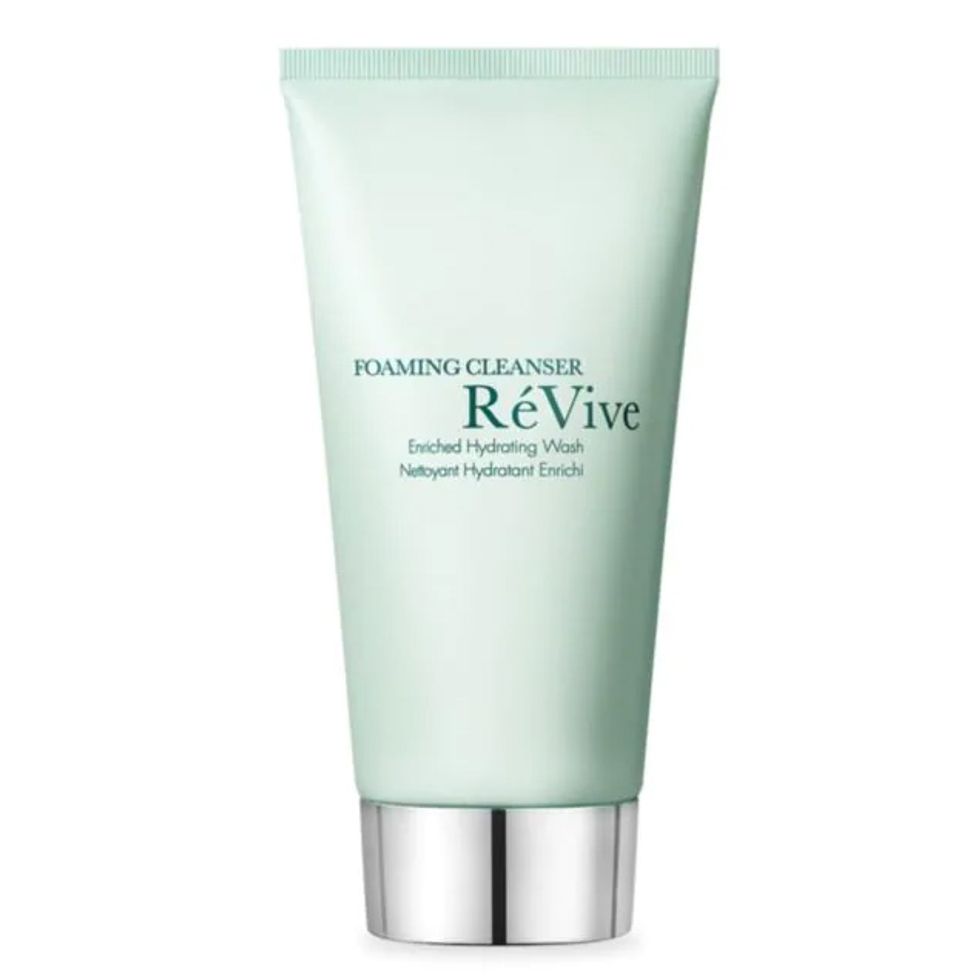Can You Really Stop Your Skin from Aging? This Dermatologist Says Yes
Dr. Macrene Alexiades reveals how plant-based skin care may replace cosmetic procedures for good.
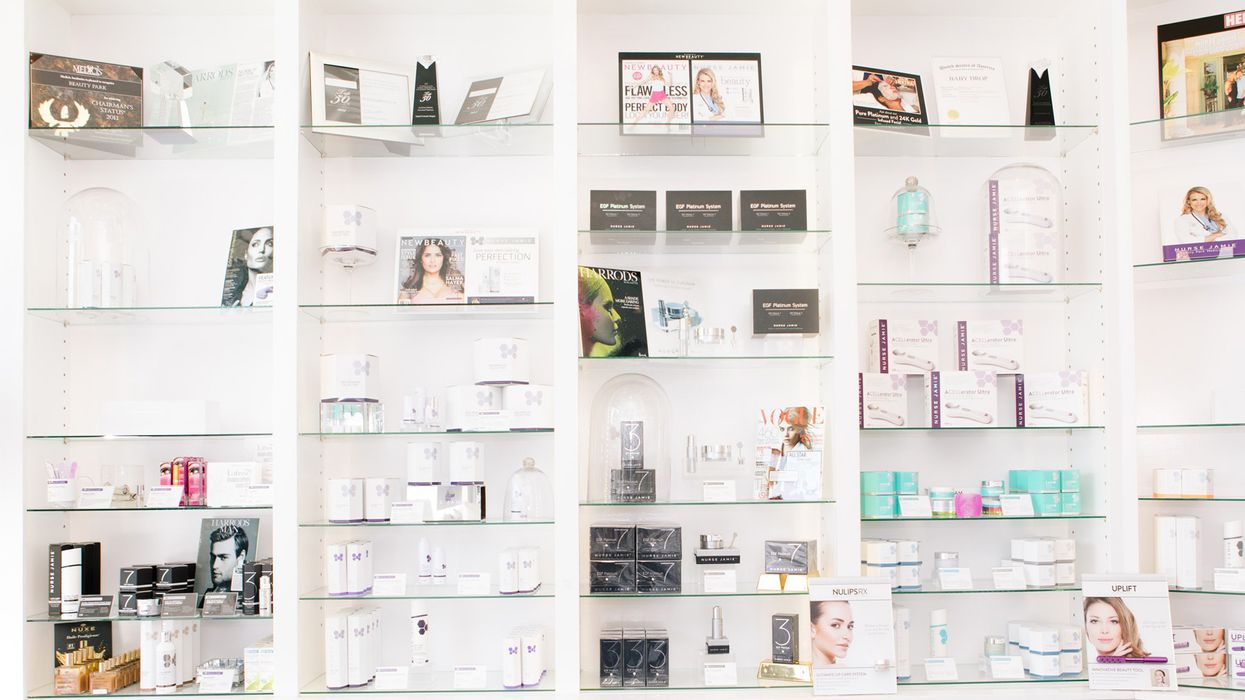
Everyone in the beauty industry knows that if you want to achieve impossibly glowy, youthful skin, you go to Dr. Macrene Alexiades. The dermatologist, who is known as Dr. Macrene to her patients, has three degrees from Harvard (flex) and has been practicing on the Upper East Side of Manhattan for twenty years. In other words, she knows great skin. But beyond that, she’s also dedicated to using natural, plant-based ingredients without compromising results in the process. Maybe that’s why every major model on IMG and DNA’s rosters visits her when they need a fresh-faced glow, fast.
This month, she’s adding two new products to her recently reformulated product line, Macrene Actives (formerly known as 37 Actives): a tinted moisturizer and a concealer, both chock-full of the active ingredients that promise to brighten and hydrate your complexion as well as smooth fine lines over time. It’s all a part of her plan to eliminate cosmetic procedures for good, meaning no one will need to invest in hyaluronic acid fillers or face-freezing neurotoxins, because your skin is already in tip-top shape thanks to natural, plant-based topicals used consistently. Sound too good to be true? Dr. Macrene assures us that it’s possible, and it might even happen within the next decade. More on her approach to skin-care products that actually work, the rise of dermatologist-fronted beauty brands, and how skin aging might be a thing of the past, below.
What inspired you to create the first iteration of your skin-care line?
“It was about ten years ago that [certain] ingredients started to come onto the scene. There were a few product lines that had key ingredients like antioxidants or DNA repair, specific product subsets, because prior to that we just had retinol, essentially. For my practice, I sourced five different products that I felt made an impact that were safe, effective, and delivered that natural beauty, but all of them were preserved in parabens at that time. So there were two reasons for me [to create the line]. Number one was to get all of the actives in one pot so you didn’t have to spend thousands of dollars and waste time. [Two] was to eliminate the toxicity, because I knew I could put all of them together and not use preservatives. The overarching goal, however, is to use active ingredients to make procedures obsolete. Actives deliver ingredients to the skin that prevent aging, restore damage, et cetera. I acted because what was out there wasn’t coordinated properly and was introducing toxicity to patients. People asked me and pushed me to do it.
“So you have antioxidants, DNA repair, peptides, which, again, is changing the molecular mechanism and increasing collagen levels to the way they were in your twenties, even though you [might] now be in your forties. This holistic approach of me figuring out ways of getting the hyaluronic acid into the skin far surpassed any clinical skin care that any derms were putting out back then.”

“When I was formulating back then, we just had Dr. Brandt and Dr. Dennis Gross. It was more clinical skin care, like peels or attacking pimples. Rip off the skin using heavy-duty retinols—that’s a clinical mind-set that still dominates my industry today. What I’m trying to do is completely different. I want to understand the molecular underpinnings of skin aging and intervene with preventative means that are much more than antioxidants that ravage free radicals. DNA repair is the most interesting to me; they actually go into the skin and replace the damaged DNA and skin aging. So you don’t have to rip off the skin and do these wholesale rebootings; you could actually correct things as you go. The only other person who’s doing something quasi like what I was trying to achieve is my good friend Gregory Brown, who works on RéVive. [He] works on growth factors.
“So derms have been involved, but more on the clinical side, since day one. For my approach, I’m really formulating; I’m not a figurehead. Lots of physicians actually do go into the lab and have the lab formulate for them, and they simply tell the lab what they want. That’s not what I’m doing. I’m growing my actives on my farm [upstate]; I’m manufacturing them with my chemists; I’m filling them by hand. So it’s a really intensive procedure that I’m doing all on my own and that no one else is doing.”
So how does the relaunch of Macrene Actives compare to the original line?
“Since the relaunch, we’re growing and extracting from organic plants that I’ve identified and chosen. From this, I plan to have a fund of knowledge from the future for the industry. From these plants, I hope to spearhead a new genre of ingredients, where I can do anything I want with them—where I can accomplish anything from these plant-based ingredients. That’s my dream. We’re also launching a tinted moisturizer and concealer with plant-derived ingredients.”
What are some of the hero botanicals that you included in the relaunch?
“There’s basically 50 active ingredients per product, and then within each plant, there are hundreds of actives that I’m in the process of identifying. So for example, there’s goldenrod, there’s pomegranate, there’s rosemary, there’s two types of mints. The list goes on and on. But the important thing to remember is that the actives may be called metapeppita, but in fact the active factors within that may do many different things. So what I’m trying to figure out right now is where the anti-acne extracts come from in my mint.
“Olive is another big category. With Macrene Actives, I got rid of any silicones that were in my skin care. Oil-free, petrolatum-free, supplemented by olive extracts. All in all, [it’s] a nod to my Greek heritage. Layering in the different plants from the farm upstate was a big factor in the relaunch, but next year I will be using the organic olive from the farm I inherited from my father in Greece. My first love was plants. I did five years of plant molecular biology research under Lawrence Bogorad at Harvard before I even studied the human body.”
Do you find that your patients are more interested in preventative measures as opposed to looking for results when signs of aging are already present?
“Even to this day, even with younger crowds, I am still coming up against the type of patient that is very procedure-based. And I haven’t quite cracked that. My ultimate goal is, again, to make procedures obsolete. But ultimately, people have to believe in science. And I firmly believe that I have achieved it. If you use the right ingredients, my ingredients, in your twenties, that your skin won’t age. Everything else, I don’t know. I can’t stop osteoporosis with a cream. Maybe down the line.”
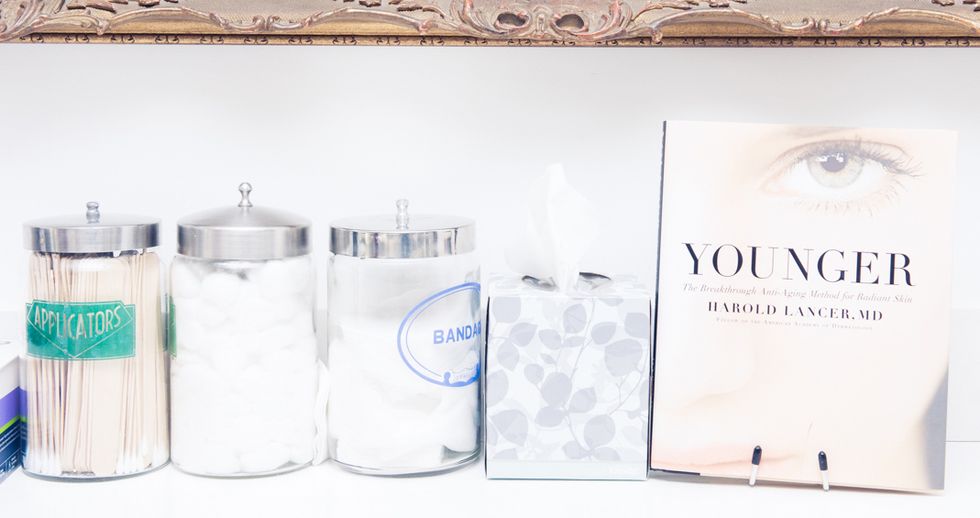
“Your eyes start to get smaller with age. Things start to dissolve and shrink with osteoporosis. So even if it’s 10 to 15 percent bone shrinkage, your skin will start to sag a little bit. We don’t just have the problems in the skin—we also have the problem of underlying tissues degenerating. I can’t fight that piece of it, but I can promise you if you use the Macrene Actives starting in your twenties, your skin itself will not age.”
How do you feel about the growing trend of younger people seeking out cosmetic procedures?
“I am dealing with a segment of the population where they feel this urgency to live life to the max, because who knows if there’s a tomorrow. Do as much, get as much, perform as much, buy as much. I think it’s fed by Instagram [among] other things. So what happens is, I have a segment of people in their twenties who want filler and Botox and lasers. This is very different and new from when I started in the ’90s, because there was no laser, there was no Botox. So we have this countercurrent of that and what I’m doing. It’s pretty common knowledge that IMG and DNA models come to me, and my goal is to get their skin so beautiful that we’re not using artificial lasers or injectables. But for the young people that are coming to me for those things, I’m just making sure it’s a really natural touch. But that is a real trend I see.”
What else do you recommend for people to maintain their natural beauty throughout each decade of their lives?
“Start young with [my products], for sure. That will make the biggest difference. If you jump from brand to brand, you are doomed, because you will never maintain the results. It’s like changing your diet every week—you’re never going to maintain what you’re looking for. You have to be consistent. You have to do your homework. Take responsibility for it. If your body can’t live on only mushrooms, it doesn’t make sense that your skin can. Make sure you’re getting all of your nutrients, skinwise and orally. That’s for your twenties.
“If you’re experiencing issues like, say, laxacity or wrinkles, you can definitely seek out treatment. You want to make sure whoever is doing it has an artistic eye and is also technically gifted. Research it. Be in charge of your vision. Don’t allow anyone else to impose their vision onto you. Let’s say you go to a physician and they’re like, ‘I think you really need a chin implant, I’m putting filler here, et cetera.’ As if god didn’t know what they were doing to you. Push back a little bit. Take a breather. Don’t allow someone to change your appearance. Really make sure you protect yourself, because the person you’re seeing may not really know what’s best for you.”
Will skin aging actually be obsolete in the next decade?
“Yes! My daughter is a philosophy major at Harvard, and she just wrote a paper on living forever—where the cells don’t die, the tissue lives forever. This is something we’re really going to contend with in the upcoming decade. I can do it with the skin, not with everything. Like, you’re in the coffin and they’re like, ‘Wow, she [looks] 20!’ There are philosophical implications of it—what are we losing by not aging? I’m not worried about it. Now that we’ve achieved it, will it shift expectations? If you’re 50 and your skin looks like it’s 20, what does that mean for other things? Where are we going to shift that energy to?”
Shop the Story:
15 Winter Beauty Essentials We Can’t Live Without
This Might Be the Key to Ridiculously Sculpted Cheekbones
Lizzo’s Makeup Artist Reveals His Must-Have Beauty Products

